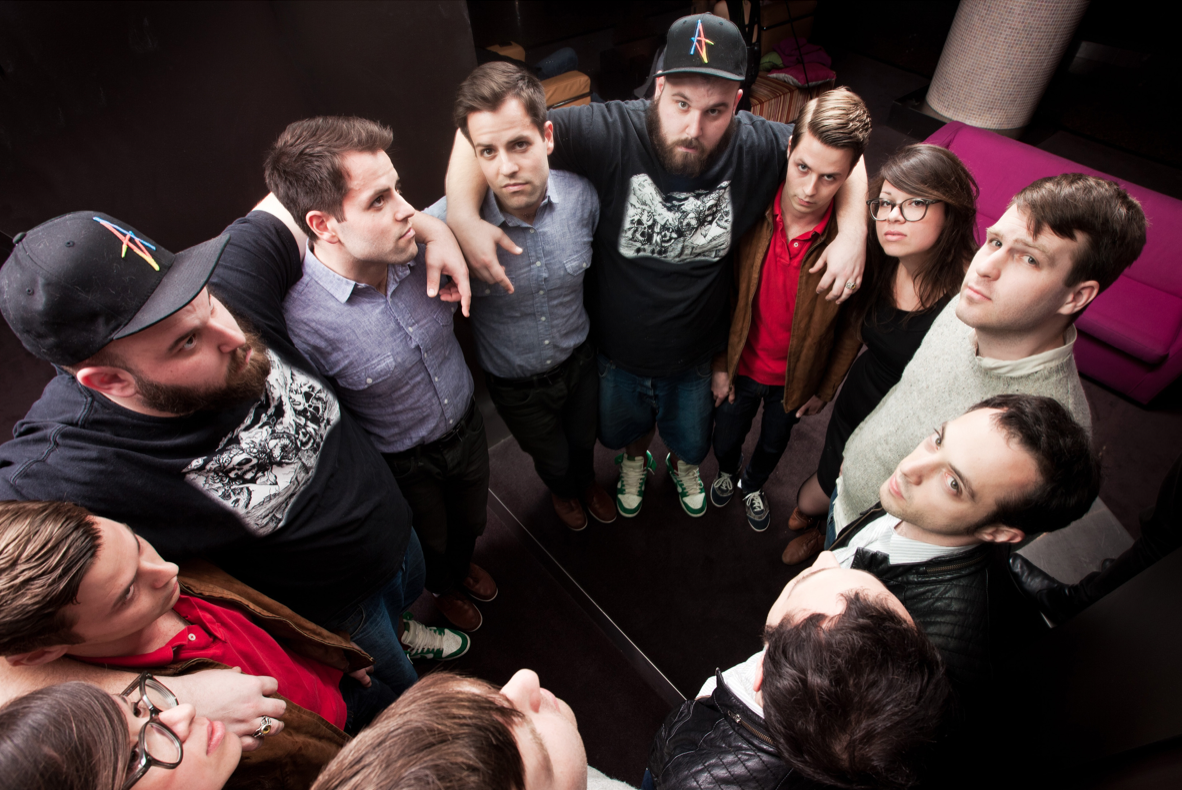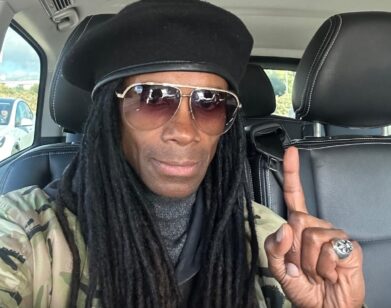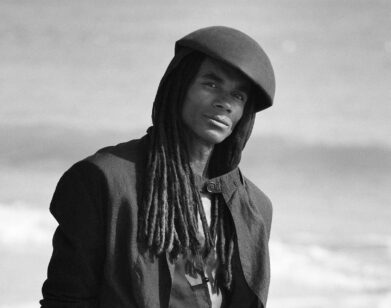Coming to Life with Fucked Up

FUCKED UP. PHOTO COURTESY OF DANIEL BOUD
Since 2001, Toronto-based Fucked Up has explored the boundaries of hardcore and punk music through a series of wild live shows and mind-expanding recordings. Their debut album, Hidden World, is a ferocious bark at breakneck speed, with songs veering dangerously toward the ten-minute mark (a punk faux pas). The Chemistry of Common Life, their 2008 breakthrough album, was embraced by the indie-rock universe, stripping down the band’s thrashing roots in favor of a full-bodied wall of psychedelic sound.
On paper, the band’s new album, David Comes to Life, shouldn’t work. Their third full-length, christened a “rock opera,” tells a multi-character romance yarn in which the narrator suddenly emerges as a defining character, with political and metaphysical overtones. The narrative has more in common with postmodern literature than anything a punk band, or any band for that matter, has ever attempted on record. We spoke to lead singer Damian Abraham about the new album, hardcore audiences, and concept albums versus rock operas.
CRAIG HUBERT: When did the idea for the new album start to take shape?
DAMIAN ABRAHAM: We kind of started talking about it way back in 2006. More or less when we finished doing Hidden World, Mike [Haliechuk, guitarist] started talking about how we were going to do a musical based around the song “David Comes to Life” on that record. I don’t know how serious we all thought it was until we put out this record The Chemistry of Common Life, and there was just so much, like, unattainable praise placed on that record, it was almost overwhelming for us. So we kind of felt like it was as good a time as any to try this half-joke-half-serious plan for this concept record. The recording itself took six or seven months, between everything. By the time we did the story, because we were delaying that so much, the music was pretty much done—we almost placed the plot line around the music. We knew certain songs had certain levels of energy, and certain crescendos in there, so we almost built it backwards as a record.
HUBERT: The story on the record is fairly complicated and dense. How did you plot out the story?
ABRAHAM: Well, we would meet at this shopping mall in downtown Toronto. We would just go there and eat in the food court and sit there with a laptop and all these notes spread out all over the desk and hash out what we thought the story should be. I think the reason it gets so dense is because then Mike and I took these notes and went back to our separate houses, or whatever, and started the process of writing the lyrics, almost in isolation from one another.
HUBERT: It’s interesting you say that, because there is not a sense of different people writing different parts. It works as a cohesive whole.
ABRAHAM: Thank you. I think it fits so well together in the end—and I would like to say it was by design, but it was truly a happy accident. We had this story bible that we had created and kept referring to which, more or less, kept us on track. It’s just when we start putting in the metaphors, and start making analogies, that it starts getting a little dense and stuff. I think we both had different ideas of what every character was meant to represent and what their motivations were.
HUBERT: David Comes to Life is such a large project with so many different parts. Was there ever the sense, even halfway through, where you thought: “Can we pull this off?”
ABRAHAM: Oh, absolutely. I can pinpoint the moment. We’re doing the vocals in New York, and I’m in the studio and incredibly behind in how many lyrics I have to write, and Mike is behind in how many lyrics he has to write. We’re both really under the gun. I’m just like, “Can’t we just drop this, take half these songs and be like: Here’s the record, there you go.” It’s a different way of writing than you normally have. When I’m writing normally, I’ll just put the song on and just go about my day and come up with lyric ideas and sit down and hash them out. With this album, because we did have the story bible, a lot of it had to be done sitting in front of a computer with the plot points on the screen, trying to make sure you’re getting a personal connection to the songs. Not to sound overly dramatic, but it’s an emotional thing to kind of peel back these old scars that you have from failed relationships in your mid-twenties and things like that. It was a lot more involved than the normal lyric writing process. But I’m really happy that we did it this way. By Fucked Up standards, this definitely is the most ambitious thing we’ve ever attempted, and the fact that we finished it is so awesome.
HUBERT: Was it always a long-term goal for the band to move away from traditional hardcore music toward something more diverse?
ABRAHAM: I don’t think there was ever any moment where we sat down and said we’re going to write songs like this, and head in this direction. I think for us it just kind of naturally happened that way. Because of that, I think we alienated a certain section of our fan base—which is fine; I don’t fault anybody for not liking our band, or not liking or some stuff way more than other stuff. At the same time, we experienced an increased interest from people in the indie-rock world. We’re really lucky that we can walk that line; hopefully we can walk that line forever. It worked out well that the indie kinds started showing up and some of the hardcore kids stopped showing up. There’s a year there where the crossover didn’t really happen. It was looking a little grim. [laughs]
HUBERT: The David character, who forms the center of the album, has been part of the band’s mythology for a long time. Will there be more from David in the future, or is this the defining statement?
ABRAHAM: This is probably the defining statement of David. I’ve started trying to push everyone in the band to do this new EP idea that I have. This is not something that’s going to happen immediately, more like down the line. I wouldn’t mind us doing the Veronica EP—telling Veronica’s story up until the start of David Comes to Life. That’s the one issue I think is unfortunate—Veronica’s character comes off a little one-dimensional. Hopefully we’ll be able to collaborate with some female singers and songwriters as well, trying to offer a little more three-dimensional perspective to Veronica.
HUBERT: In some recent interviews, you’ve seemed not sure about the future of the band after this album…
ABRAHAM: Yeah, after a record, I think it’s only natural to kind of feel like you’re at a precipice for your band. What do you do? I think we’re just at one of those precipices. I don’t know what shape that’s going to manifest itself on the next record. Nothing is going to change in the immediate future. But I think going forward, how do you dial back from the rock opera? How do you come back and be like, “This is our record of stripped-down country songs.” So, I think it’s going to change shape. I think it’s a really exciting thing, in a really positive way.
HUBERT: Concept album or rock opera? Which do you prefer?
ABRAHAM: I think it depends on who you ask in the band. I think some people in the band would refer to it as a concept record. I luckily get interviewed the most, so I can refer to it as a rock opera. I guess ultimately, this is a concept record, but it’s designed in such a way that it can be turned into a rock opera. There were times when we were entertaining the idea of treating it more like a cast recording, but in the end we decided to make it, even more than other records that we’ve made, just a band record.
FUCKED UP WILL PLAY HOUSE OF VANS IN BROOKLYN ON FRIDAY WITH CRO-MAGS. DAVID COMES TO LIFE IS OUT NOW. FOR MORE ON THE BAND, VISIT THEIR WEBSITE.






